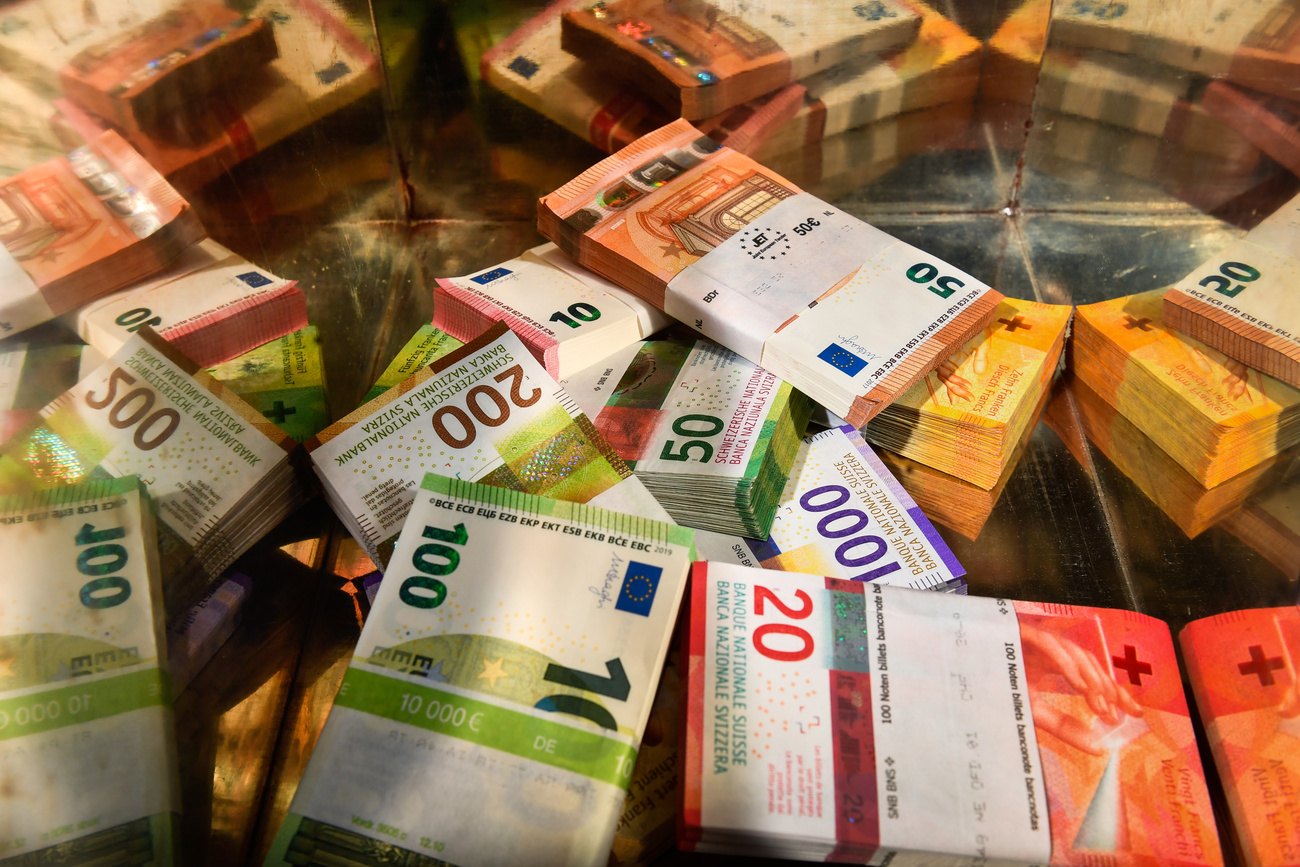Swiss share prices boosted by events elsewhere

The leading stock market index, the Swiss Market Index (SMI), reached a three-year high this week, a milestone both for investors and the economy.
However, the share-price hike highlights how much the Swiss economy depends on events beyond its control – and on the performance of a handful of major multinationals.
The SMI reached a three-year high of nearly 6,270 points on Tuesday, representing a total market value for its 27 member companies of some SFr627 billion ($493 billion).
Martin Janssen, a professor of finance at Zurich University, told swissinfo: “Switzerland is such an economically open, export-dependent country that it is difficult to separate domestic [market drivers] from those in the rest of the world.
“The Swiss stock market is driven maybe 80 per cent or more by what happens elsewhere. If the European and world economy run well, then the SMI should run well, too. The situation is very different to that in [larger countries] such as Germany.”
However, he declined to comment on exactly what was responsible for the recent stock market surge, saying: “If I knew that, then I would be able to forecast the market, and I cannot. Nor can anyone else.”
Many financial analysts are less hesitant, and the general view is that Swiss stock prices have been rising for the same reasons as those elsewhere in Europe – higher corporate profits, relatively low interest rates (which encourage investment) and a rebound by the US dollar (which makes life easier for Swiss exporters).
Risk averse
Vontobel Bank research analyst Thomas Pfyl points out that Swiss companies have been able to report high profit levels in large part due to the relatively rapid growth of American and Asian export markets at a time of economic stagnation in much of Europe.
However, several observers point out that the Swiss stock market also benefits from the fact that many investors are currently “risk averse”.
The three largest Swiss companies, Novartis, Roche and Nestle, are all active in industry sectors (pharmaceutical and food) generally classified as “defensive” – meaning that investors “take refuge” there in the same way that currency speculators buy Swiss francs in uncertain times.
Janssen added: “Switzerland is somehow very special because the stock market is so heavily dominated by just five companies – Nestle, Novartis, Roche and the big banks [UBS and Credit Suisse].
“They therefore make up a correspondingly large part of whatever index you care to take. In that sense, the SMI is not really an index just of the Swiss economy – it is an index of diversified international stocks.”
He says the only European country where the stock market plays a comparably important role in the overall economy is the Netherlands, with Dutch-UK joint ventures Royal Dutch/Shell, Unilever and Dutch conglomerate ING.
Top of Europe
The point is borne out by a new survey published by the Financial Times newspaper, which lists the world’s 500 largest companies (based on market value as of end March).
The top five Swiss companies all make it into the top 100 worldwide, and all but Credit Suisse are also in the top 50.
The UK (with 12 firms), and France (with six) are the only European countries to have more companies than Switzerland in the first 100, while Germany trails with just four.
Between them, the Swiss “top five” account for some 90 per cent of the total value of the SMI.
SMI membership is based on two main criteria – market value and liquidity. The next revamp is due shortly.
While the broader Swiss Performance Index or SPI comprises 200 additional companies, its total market value is only about 25 per cent higher (SFr857 billion).
To put those figures in contrast, the total value of the Swiss economy – measured by annual gross domestic product or GDP – is barely half as much, at around SFr450 billion.
swissinfo, Chris Lewis in Zurich
The SMI reached nearly 6270 points (SFr627 billion) on Tuesday – up from a March 2003 low of 3618, but still well below its 1998 peak (8412).
The index represents the current market values of all 27 member companies (market share price times number of shares).
The SMI has risen by nearly 10% since January, the broader SPI by just over 11%.
The stock market rise highlights the extent to which the state of the Swiss economy simply mirrors events elsewhere.
Market observers say it also shows how much the country depends on the performance of a few major companies.
However, the growing tendency to invest in “defensive” sectors (pharma, food) may also have played a key role.

In compliance with the JTI standards
More: SWI swissinfo.ch certified by the Journalism Trust Initiative










You can find an overview of ongoing debates with our journalists here . Please join us!
If you want to start a conversation about a topic raised in this article or want to report factual errors, email us at english@swissinfo.ch.